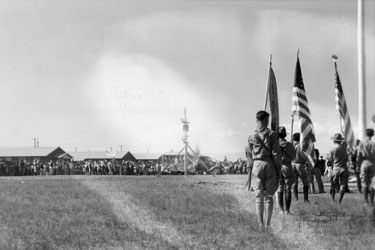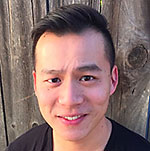
As part of our public relations undergraduate degree at the University of Southern California, we were required to take a broadcast journalism class. It was meant to provide us with more context for how broadcast journalists use sound and video to tell their stories.
But I learned a much more important lesson than how to splice together different recordings to create a cohesive packaged story for the nightly news.
Our professor was a 30-year-plus veteran of the Los Angeles broadcast scene, one who would remind us every week that he worked at one of LA's four major broadcast stations. He also had a bit of a temper.
During the second week, he told us that our first assignments were the worst he had ever seen in all of his years as an adjunct professor. No one had done better than a C.
Halfway through his yelling at each student in the class, he turned his attention to me and exclaimed, "And your work, Daniel ... is English your second language? Were you born here in America? I don't understand how you can consider yourself a journalist with such poor grammar skills."
I didn't know how to respond. I bit my lip and just held it all in. I didn't dare speak back, and none of my fellow classmates said anything either. I went home that day frustrated, angry, and deeply hurt.
I was born and raised in Maryland. English was my first language. I had received national awards in high school journalism. I was here on a journalism scholarship.
And yet, whether my professor intended it or not, his statement threatened my sense of belonging in my own homeland. It was a reminder that because of my appearance, I would never be considered a full American, but an adjective, a hyphen, an outsider.
The problem is, I love America. I can't imagine having grown up anywhere else. But a part of understanding the complexities of Asian American identity is to dissect and challenge what it means to be American.
We cannot be blind to how America has not always regarded Asian Americans as one of its own. We've been mistreated, taken advantage of, and ignored in political, social, and economic contexts. And borders continue to be built and kept today.
I regret that I never shared this story with my academic advisors at USC, while I'm sure this man's actions and outbursts continued to harm other students. I regret the many other instances where I've remained silent, regarding both myself and others.
And so, we remember. We unearth these recollections of pain, so that we engage in countering false narratives of what it means to belong. And we tell our stories.

Daniel Chou (he) serves as the editor-in-chief of Inheritance and is also one of the magazine’s founders. He holds a Master of Divinity from Fuller Theological Seminary. Outside of Inheritance, he is co-founder of Winnow+Glean and enjoys roasting coffee. He posts sporadically on Instagram @dchou and even more sporadically on Twitter @danielchou.